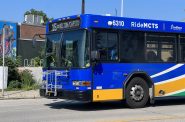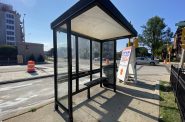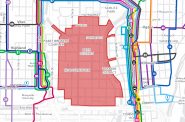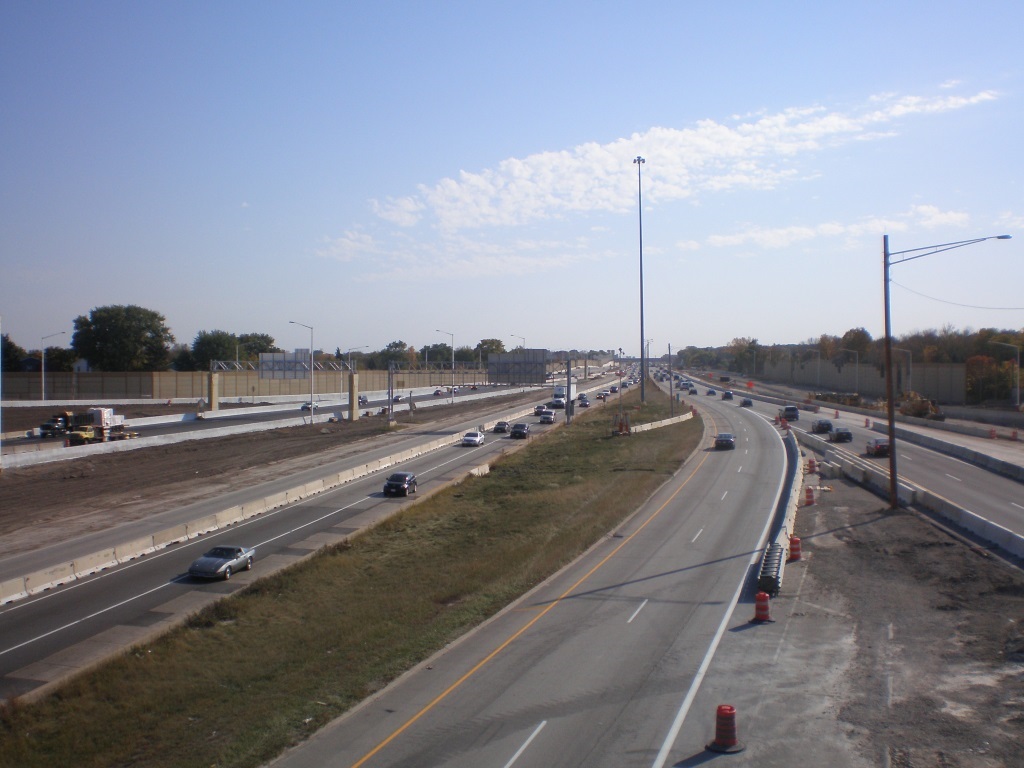Commerce Groups Want Highway Funding Deal
But only if legislature adopts certain changes they propose.
In a Capitol controlled by Republicans, what chambers of commerce leaders want often becomes law. That’s been true since those civic groups helped elect and re-elect Gov. Scott Walker, and grow bigger Republican majorities in the Legislature, over the last six years.
And, although it was buried in almost eight hours of Assembly Transportation Committee testimony at a by-invitation-only hearing last week, the first signs of a possible compromise on long-term transportation funding emerged.
Although they testified separately, two economic development leaders – Jason Culotta of Wisconsin Manufacturers & Commerce (WMC) and Steve Baas, a senior vice president of the Metropolitan Milwaukee Association of Commerce – drew legislators a possible road map to a long-term transportation funding compromise.
It’s one thing for legislators to flatly say, as Republican Sens. Duey Stroebel and Chris Kapenga did last week, “We did not come here to raise taxes.” And, Walker last week again repeated that he would not raise transportation fees or taxes without an offsetting cut in taxes or spending.
It’s another for lobbyists like Culotta and Baas to send this signal: We’d rethink our opposition to a tax or fee increase if it came with some specific changes.
So, it was no coincidence that Culotta and Baas listed the same five changes they’d like to see as part of any tax-and-fee raising funding compromise.
New cash is needed because the Transportation Department is more than $900 million short of paying for current highway construction and maintenance by mid-2019. The governor had WisDOT propose a budget that did not raise taxes or fees, borrowed an additional $500 million, and delayed several major highway projects.
But will voters support some kind of tax or fee increase?
“Discussion about revenue increases cannot begin with a skeptical public until cost efficiency and transparency measures are thoroughly implemented and exhausted,” said Culotta, WMC’s senior director of government relations.
Baas struck a similar theme in his testimony: “We must start by earning the public’s trust and confidence. Hard-working taxpayers cannot be asked to pay more – regardless of the form in which they are paying it – unless they can have the full confidence that we are making efficient use of the funds they are already providing.”
The five changes to achieve “efficiency and transparency” that Culotta and Baas said should be made before any taxes or fee increase:
*Repealing the “prevailing wage” law that specifies the pay of workers on state highway projects. Democrats oppose this change, saying current law protects “family-supporting” jobs.
*Amending the Wisconsin Environmental Policy Act to adopt federal standards on highway construction exemptions.
*Implementing new “practical design” standards developed by WisDOT.
*Continuing the sale of excess property by the state Transportation Department – something Transportation Secretary Mark Gottlieb told legislators is already being done.
*Consolidating federal funds “in fewer places to reduce expenses these funds incur,” Culotta said.
Culotta said WMC wants two other changes not on Baas’s list: Reversing the 2013-15 budget decision to hire more engineers and related professionals, given that the agency has 1,200 of them. And, a new way of getting workers to jobs “via a private bus system similar to school buses.”
Those last two changes may not be achievable, but probably aren’t deal-killers.
Beside gas taxes and the registration fee that together bring in 90 percent of state transportation revenue, Baas suggested legislators “look at innovative new technologies and options like tolling and other vehicle miles traveled mechanisms that are fair and accurate user fee instruments.”
At the hearing, more than 30 leaders of towns, villages, counties and cities joined officials of statewide trade and economic development groups to demand a stable, long-term transportation funding system.
And, in a state long known for making and enjoying beer, Miller/Coors made a statement that connected bad roads and beer drinking:
“All of the beer produced at the Milwaukee brewery … is shipped via truck. Thus, it is critical that we have a modern, reliable and efficient highway/road system to ensure that our beers reach our retailers and consumers.”
Steven Walters is a senior producer with the nonprofit public affairs channel WisconsinEye. Contact him at stevenscwalters@gmail.com
The State of Politics
-
RNC Brings Fame to Gen Z Party Leader
 Jul 15th, 2024 by Steven Walters
Jul 15th, 2024 by Steven Walters
-
Wisconsin’s Republican Roots Run Deep
 Jul 8th, 2024 by Steven Walters
Jul 8th, 2024 by Steven Walters
-
Feuding Supreme Court Justices Need a Break
 Jul 1st, 2024 by Steven Walters
Jul 1st, 2024 by Steven Walters
Transportation
-
MCTS Adds 28 New Buses
 Jul 13th, 2024 by Graham Kilmer
Jul 13th, 2024 by Graham Kilmer
-
MCTS Designing New Bus Shelters
 Jul 10th, 2024 by Graham Kilmer
Jul 10th, 2024 by Graham Kilmer
-
MCTS Updates RNC Bus Detours To Better Serve Downtown, Riders
 Jul 9th, 2024 by Jeramey Jannene
Jul 9th, 2024 by Jeramey Jannene























Buried in this article is the fact that WMC is asking for “a new way of getting workers to jobs ‘via a private bus system similar to school buses.’”
What is this?
Are they asking for a second public transit system, sort of like charter schools are a second type of public school? Nothing is stopping employers today from operating “private … school bus-like” buses for their employees. It sounds like they are asking for new publicly-funded transit that won’t be available to the general public.
Perhaps we can eliminate all of the corporate welfare we provide as citizens and fund roads with dedicated electric light rail lanes and modernize America. WMC likes the model of maximum consumption(tires and fuel) and exist to promote the excesses of laissez faire capitalism. These Birchers historically have to be purged from our society every few decades. Now would be great timing.
From our legislature I see them trying to lower the wages of construction workers, repealing environmental laws, sourcing more materials from overseas and making up any shortfall from the education and Medicaid budgets. Governor Doyle will be blamed and they will come out looking like the saviors of Wisconsin’s roads.
WMC says jump and Walker asks how high.
Everyone says we need more $$ to fund all the projects WisDOT wants to do; maybe we need to review WisDOT’s wish list and trim it back. How many lanes need to be jammed through Milwaukee so suburbanites never experience congestion? If you want to move more people from the ‘burbs into the city centers, there’s a much more efficient way of doing that than road-widening: public transit.
Even if they do raise a bunch of $$ to build the current wish list, do they also have a plan for how to pay to rebuild it all 30-40 years from now? Or will we have the same exact problem then too?